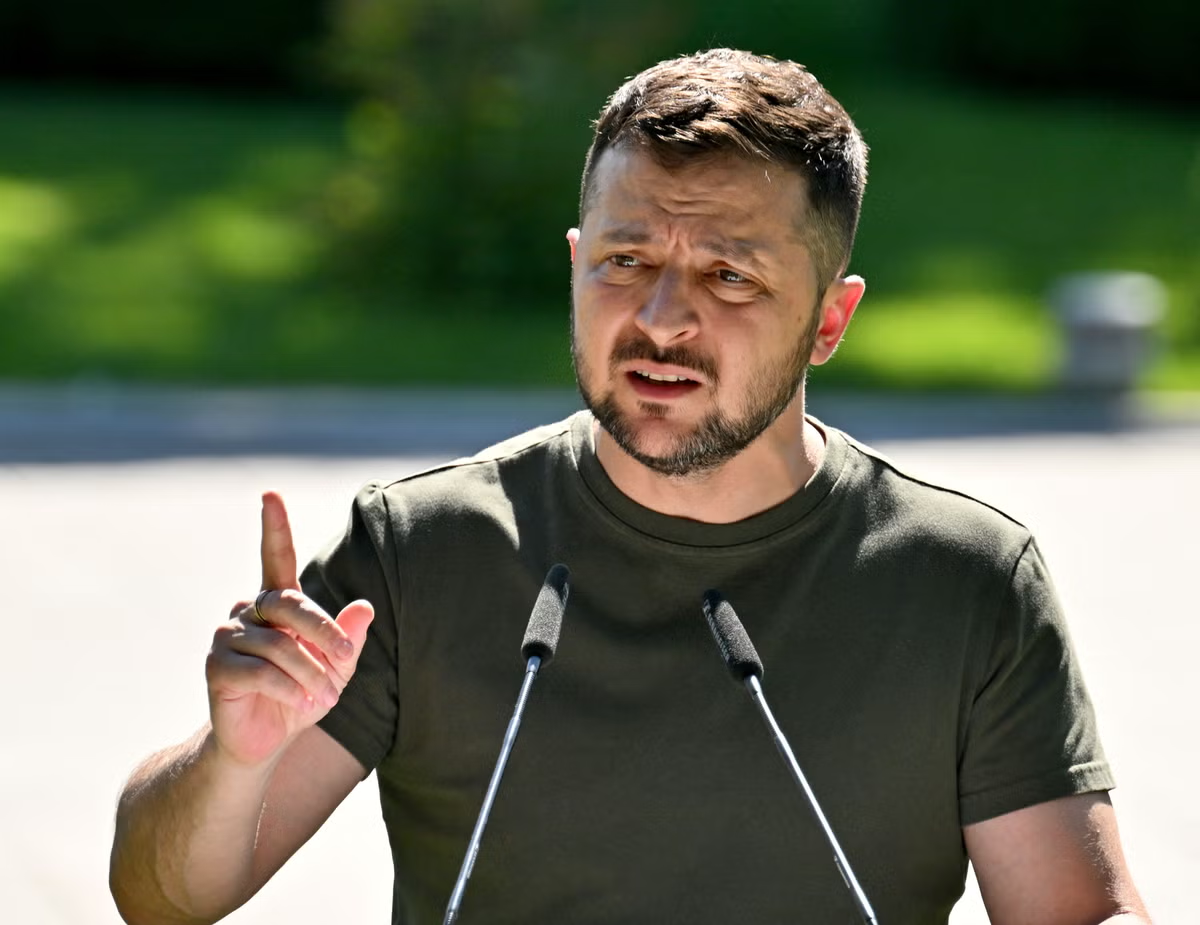Debunking Claims: Did Ukraine Initiate the War with Russia?
Recent statements by former U.S. President Donald Trump have reignited debates about the origins of the ongoing conflict between Russia and Ukraine. Trump asserted that Ukraine “should have never started” the war, suggesting that Kyiv could have averted the bloodshed through negotiations. These remarks have been met with widespread criticism and have raised questions about the factual accuracy of such claims. This article aims to dissect these assertions and provide a comprehensive overview of the conflict’s genesis, grounded in historical context and factual evidence.
Trump’s Assertions and the Immediate Backlash
In a recent press conference, Trump criticized Ukrainian President Volodymyr Zelenskyy, accusing him of instigating the conflict with Russia. He stated, “You’ve been there for three years. You should have ended it… You should have never started it. You could have made a deal.” Additionally, Trump labeled Zelenskyy as a “dictator without elections” and claimed that his approval rating had plummeted to 4%. These statements have been widely refuted by various sources. For instance, a report by The Associated Press highlights that Russia initiated the conflict with its annexation of Crimea in 2014 and the full-scale invasion in 2022. Furthermore, Zelenskyy was democratically elected in 2019, and recent polls indicate he maintains an approval rating of approximately 57%.
Historical Context: The Genesis of the Conflict
To understand the current hostilities, it’s essential to delve into the historical events that have shaped the Russia-Ukraine relationship:
-
2014: Annexation of Crimea
In February 2014, Russia annexed Crimea, a move widely condemned by the international community. This act of aggression marked a significant escalation in tensions between the two nations. -
2014-2021: War in Donbas
Following the annexation, pro-Russian separatists in Eastern Ukraine’s Donbas region declared independence, leading to armed conflict. Russia provided support to these separatists, further straining relations. -
February 2022: Full-Scale Invasion
On February 24, 2022, Russia launched a comprehensive military invasion of Ukraine, marking the most significant escalation in the conflict to date.
These events underscore that Russia has been the aggressor in the conflict, challenging claims that Ukraine initiated the hostilities.
Democratic Processes in Ukraine
Contrary to assertions of dictatorship, Ukraine has upheld democratic principles:
-
2019 Presidential Election
Volodymyr Zelenskyy was elected President in a democratic election, securing a significant majority. -
Martial Law and Election Postponement
Due to the ongoing war, Ukraine has declared martial law, leading to the postponement of elections. This measure aligns with Ukrainian law, which prohibits elections during such periods to ensure national security.
These facts contradict claims of authoritarianism and highlight Ukraine’s commitment to democratic governance.
Casualty Figures: Setting the Record Straight
Accurate casualty reporting is crucial for understanding the war’s human cost:
-
Military and Civilian Deaths
Estimates indicate that over 46,000 Ukrainian soldiers have been killed since the full-scale invasion in 2022. Civilian casualties are also significant, with tens of thousands reported, though exact figures remain uncertain. -
Inflated Numbers
Claims suggesting “millions” of deaths lack credible evidence and are not supported by reputable sources.
These statistics provide a more accurate picture of the conflict’s toll, countering exaggerated claims.
International Reactions and Geopolitical Implications
Trump’s statements have elicited varied responses on the global stage:
-
Russian Endorsement
Russian officials have welcomed Trump’s remarks, viewing them as validation of their narrative. Foreign Minister Sergey Lavrov praised the alignment with Moscow’s stance against NATO’s expansion. -
Ukrainian Response
President Zelenskyy condemned the comments, accusing Trump of residing in a “disinformation bubble” influenced by Russian propaganda. -
European Concerns
European leaders have expressed alarm, with emergency meetings convened to address potential shifts in U.S. policy and their implications for regional security.
These reactions underscore the complex geopolitical dynamics at play and the potential consequences of misinformed narratives.
Conclusion: The Importance of Accurate Narratives
The conflict between Russia and Ukraine is deeply rooted in a series of aggressive actions initiated by Russia, beginning with the annexation of Crimea in 2014 and escalating with the full-scale invasion in 2022. Assertions that Ukraine started the war are not supported by historical evidence. In times of geopolitical tension, it is imperative to ground discussions in factual accuracy to foster informed dialogue and effective policy decisions.

